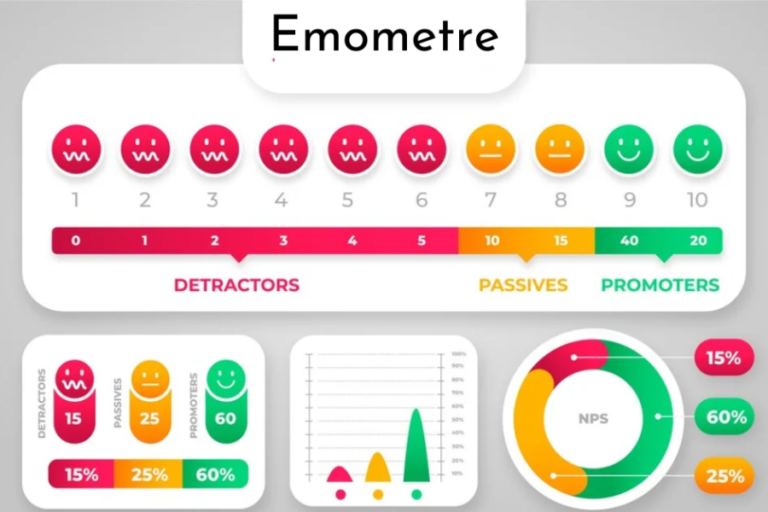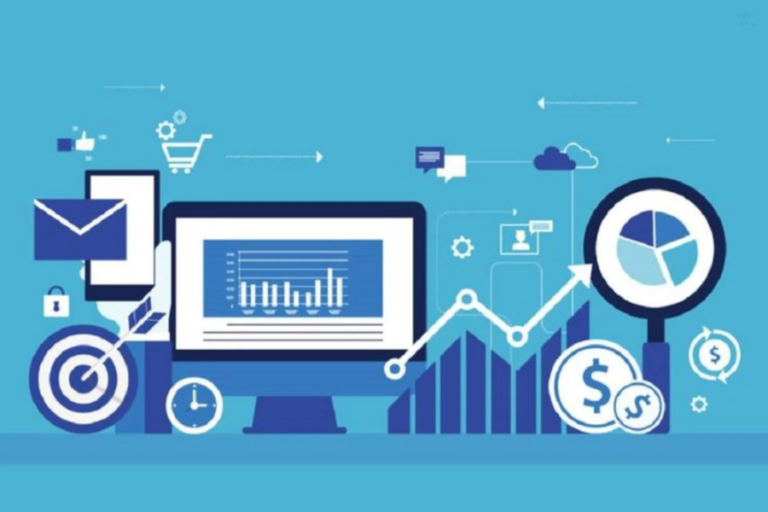Understanding EU-NENCFZS8: A New Era for Consumer Data Protection in the EU
In today’s digital era, data breaches and privacy concerns are widespread, making it crucial to understand the regulatory frameworks that protect consumer information. One such framework is EU-NENCFZS8, an initiative designed to improve data protection and ethical marketing practices within the European Union. This article delves into the key aspects of EU-NENCFZS8 and its significance for both businesses and consumers.
What is EU-NENCFZS8?
EU-NENCFZS8 is a regulatory framework introduced by the European Union to address growing concerns about consumer data protection and privacy. With the increasing use of digital platforms for transactions, the risk of data misuse and unauthorized access has escalated. As a response, EU-NENCFZS8 aims to ensure businesses handle consumer information responsibly, promoting trust and security in the process.
The framework operates under the premise that consumers should have control over their personal data. Given the rapid pace of technological advancements, regulations like EU-NENCFZS8 are essential for keeping pace with the evolving digital landscape and ensuring robust protections for consumer privacy.
Key Objectives of EU-NENCFZS8
EU-NENCFZS8 focuses on two core objectives: safeguarding consumer data and promoting fair marketing practices. The framework encourages businesses to prioritize privacy and security, addressing the growing concerns around data breaches and misuse. It also establishes guidelines for businesses to follow to achieve these goals.
Additionally, EU-NENCFZS8 stresses transparency in marketing practices. Businesses are required to clearly inform consumers about how their data will be used, ensuring that consumer information is not exploited for deceptive purposes. By focusing on both data protection and transparency, the framework helps rebuild trust in digital services.
Core Principles of EU-NENCFZS8
EU-NENCFZS8 is founded on several fundamental principles that guide its implementation. One of the core principles is data minimization, which mandates businesses to collect only the data necessary for their operations. This principle reduces the risks of over-collection, ensuring businesses do not hold more information than needed.
Another key principle is secure processing, which requires businesses to implement adequate security measures to safeguard consumer data. This includes adopting encryption technologies, conducting regular security audits, and providing employee training on best data-handling practices.
Finally, transparency and consumer rights are central to the framework. Consumers must be informed about the data being collected, its intended use, and who will have access to it. This ensures businesses operate ethically and with respect for consumer privacy, promoting responsible marketing practices.
Industry Applications of EU-NENCFZS8
EU-NENCFZS8 has broad applicability across various industries, reflecting the diverse ways data is collected and used in the digital economy. In the retail sector, for example, businesses must adhere to the framework when collecting consumer data during transactions. This includes offering clear privacy policies and providing customers with the option to opt-out of data collection if they choose.
The financial services industry is particularly affected, as these organizations handle sensitive financial data. EU-NENCFZS8 mandates that financial institutions implement rigorous security measures to protect consumer data, ensuring customers can trust the safety of their financial information.
The healthcare sector is also significantly impacted by EU-NENCFZS8 due to its handling of sensitive personal health data. Compliance with the framework ensures healthcare providers adopt strong data protection strategies, fostering greater patient trust and improving outcomes.
Consumer Rights Under EU-NENCFZS8
One of the most notable aspects of EU-NENCFZS8 is its emphasis on consumer rights. The framework grants individuals several rights regarding their personal data, transforming the way businesses engage with consumers.
One of the fundamental rights is the right to be informed. Consumers must be notified about the data being collected, how it will be used, and who may have access to it. This transparency allows individuals to make informed decisions about their data, ensuring stronger consumer protection.
Additionally, consumers have the right to opt-out of data processing for marketing purposes. Businesses must obtain explicit consent before using data for promotional activities. This gives consumers more control over how their information is used, encouraging ethical data handling and marketing practices.
Compliance Requirements for Businesses
Compliance with EU-NENCFZS8 is not just a legal requirement; it is also a strategic necessity for businesses. Companies must take several steps to align with the framework, starting with conducting a Data Privacy Impact Assessment (DPIA). This assessment identifies potential risks related to data processing activities and outlines measures to mitigate those risks.
Furthermore, businesses must implement clear consent mechanisms to ensure they obtain valid, informed consent from consumers. This includes explaining what data is being collected, its purpose, and providing straightforward methods for consumers to give or withdraw consent.
Accurate record-keeping and documentation of all marketing activities are also essential for businesses to demonstrate compliance with EU-NENCFZS8 and ensure transparency in their data handling practices.
Challenges in Implementing EU-NENCFZS8
While EU-NENCFZS8 brings numerous benefits, its implementation is not without challenges. One significant obstacle is achieving widespread adoption across different industries. For the framework to be truly effective, businesses must work together and commit to upholding its standards, which can be difficult in a competitive market.
Another challenge is the potential cost and resource demands of compliance. Businesses may need to invest in new technologies to improve data protection and establish comprehensive training programs for staff. These investments can be especially challenging for smaller companies with limited resources.
The rapidly changing nature of technology and data privacy also presents difficulties. As new threats and challenges emerge, businesses must continually update their practices to stay in compliance with EU-NENCFZS8. This requires ongoing research and development, which can be a significant burden for many organizations.
Benefits of EU-NENCFZS8 for Consumers and Businesses
The benefits of EU-NENCFZS8 extend beyond mere compliance. For consumers, the framework enhances trust and confidence in digital transactions. Knowing that their data is protected under a comprehensive regulatory framework empowers individuals to engage more freely in online activities, from shopping to banking and accessing healthcare services.
For businesses, adhering to EU-NENCFZS8 can provide a competitive edge. Companies that prioritize data protection and ethical marketing tend to build stronger relationships with customers, leading to increased loyalty and repeat business. Additionally, compliance can reduce the risk of data breaches and regulatory penalties.
On a broader scale, EU-NENCFZS8 fosters a healthier digital ecosystem. By encouraging ethical data practices and transparency, the framework supports responsible growth and innovation in the digital economy, benefiting society as a whole.
The Future of EU-NENCFZS8
As technology evolves, EU-NENCFZS8 must adapt to address new challenges in data protection. The increasing use of artificial intelligence and machine learning, for example, raises unique privacy concerns. As businesses leverage these technologies, the framework will need to account for their implications on consumer privacy.
Moreover, as more countries introduce their own data protection laws, EU-NENCFZS8 may influence global standards. This could encourage international collaboration, leading to the development of unified data protection frameworks.
In conclusion, the future of EU-NENCFZS8 is promising. By adapting to emerging trends and continuing to prioritize ethical data handling, businesses can position themselves as leaders in the evolving landscape of data protection.
Summary:
EU-NENCFZS8 is a regulatory framework introduced by the European Union aimed at strengthening consumer data protection and promoting ethical marketing practices in the digital age. It seeks to address growing concerns about data breaches, misuse of personal information, and the lack of transparency in digital marketing. The framework is based on principles like data minimization, secure processing, and consumer rights, ensuring that businesses handle consumer data responsibly and transparently. EU-NENCFZS8 applies across various sectors, including retail, finance, and healthcare, and mandates strict compliance for businesses to protect consumer privacy and build trust. It offers several consumer rights, including the right to be informed and to opt-out of marketing data processing. While compliance may present challenges for businesses, the benefits include enhanced consumer trust, a competitive edge, and a stronger digital ecosystem.
Key Facts:
- Introduction: EU-NENCFZS8 is a data protection initiative by the European Union designed to safeguard consumer privacy and regulate ethical marketing practices.
- Core Objectives: Protect consumer data, ensure transparency in marketing, and promote secure data handling.
- Principles: Includes data minimization, secure processing, and transparency regarding data usage.
- Industry Impact: Affects sectors such as retail, finance, and healthcare, which handle sensitive data.
- Consumer Rights: Grants rights such as the right to be informed and the right to opt-out of marketing data processing.
- Compliance Requirements: Businesses must conduct Data Privacy Impact Assessments (DPIA), maintain consent mechanisms, and keep clear documentation to ensure transparency.
- Challenges: Widespread adoption across industries, compliance costs, and adapting to evolving technology pose challenges for businesses.
- Benefits for Consumers: Increased trust and confidence in digital transactions due to robust data protection.
- Benefits for Businesses: Builds customer loyalty, reduces the risk of breaches, and offers a competitive advantage.
- Future Outlook: EU-NENCFZS8 will evolve to address new technologies such as AI and continue shaping global data protection standards.
FAQs:
1. What is EU-NENCFZS8?
EU-NENCFZS8 is a regulatory framework introduced by the European Union to enhance consumer data protection and promote ethical marketing practices across various industries. It addresses privacy concerns and ensures responsible data handling by businesses.
2. What are the main objectives of EU-NENCFZS8?
The primary objectives of EU-NENCFZS8 are to safeguard consumer data, ensure businesses handle data securely and transparently, and promote ethical marketing practices that prioritize consumer consent and privacy.
3. How does EU-NENCFZS8 protect consumer rights?
EU-NENCFZS8 grants several consumer rights, including the right to be informed about how their data is used, the right to opt-out of marketing data processing, and the right to have their data securely handled.
4. Which industries are most affected by EU-NENCFZS8?
Industries such as retail, finance, and healthcare, which handle large volumes of consumer data, are significantly impacted by EU-NENCFZS8. These sectors must implement strong data protection measures to comply with the framework.
5. What challenges do businesses face in implementing EU-NENCFZS8?
Businesses may face challenges such as the cost of compliance, the need for new technologies and security measures, and adapting to rapidly evolving privacy regulations. Smaller companies may struggle with the resource demands of compliance.
6. How can businesses ensure compliance with EU-NENCFZS8?
Businesses must conduct Data Privacy Impact Assessments (DPIA), obtain explicit consent from consumers for data processing, and maintain accurate records of marketing activities. They should also implement robust security measures to protect consumer data.
7. What are the benefits of EU-NENCFZS8 for businesses?
Adhering to EU-NENCFZS8 can improve consumer trust, foster stronger relationships, reduce the risk of data breaches, and provide a competitive edge in the market by demonstrating a commitment to data protection.
8. How does EU-NENCFZS8 impact global data protection standards?
As more countries adopt their own data protection laws, EU-NENCFZS8 could influence global standards, encouraging international collaboration and the development of unified frameworks to address emerging data privacy concerns.
9. What is the future of EU-NENCFZS8?
The future of EU-NENCFZS8 looks promising as it adapts to new technologies like artificial intelligence and continues to address emerging challenges in data protection. It could also shape global data protection practices as more countries implement similar frameworks.
10. Can consumers opt-out of data processing under EU-NENCFZS8?
Yes, EU-NENCFZS8 gives consumers the right to opt-out of data processing for marketing purposes, allowing them to control how their personal information is used by businesses.
Stay informed and explore the latest trends in entertainment, lifestyle, and more at objectiverelease.com.






